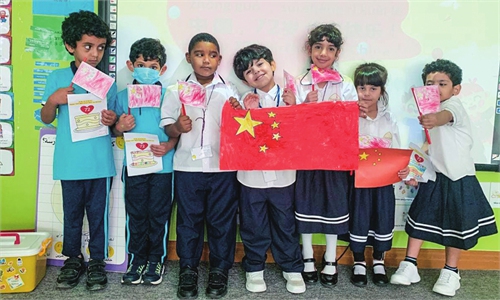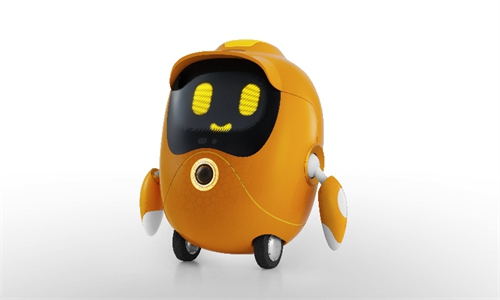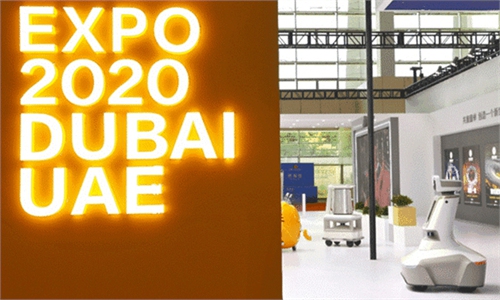UAE friends support China after seeing prosperity, unity of Xinjiang: Chinese envoy
Editor's Note:
China-UAE ties have been a model in the Middle East, as the two countries have achieved profound communication and cooperation in areas including economy, science and technology, and education. In the past years, the Belt and Road Initiative (BRI) has further deepened the bond between the two countries. What is the key to the success of the relationship between China and the UAE? What are the future plans to broaden cooperation? How can the people of the UAE better understand China? Recently, Global Times reporters Shan Jie and Lou Kang (GT) spoke with Ni Jian (Ni), Chinese ambassador to the UAE, who shared his experience in further promoting mutual communication.
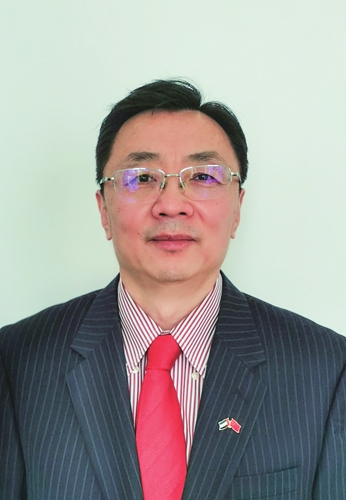
GT: China and the UAE established diplomatic relations in 1984, and in 2018 the two countries established a comprehensive strategic partnership. At the same time, people-to-people exchanges have always gone smoothly. What do you think is the key to the success of the relations between China and the UAE?
Ni: In 2018, Chinese President Xi Jinping paid a state visit to the UAE. During his visit, he brought forward "four hopes" on the development of China-UAE relations - the two countries will work hand in hand as "strategic partners who truly trust each other, collaborative partners who pursue win-win outcomes and mutual benefits, interactive partners who learn from each other, and innovative partners who champion result-oriented actions."
In the past few years, China-UAE relations have maintained a comprehensive, rapid, and in-depth development thanks to the practice of the "four hopes," the building of great trust and the new model of mutual ties that allow the two countries to help and understand each other.
The core and key here is that the two countries treat each other as equals. China believes that all countries, big or small, should be equal. We should respect each other's sovereignty, not seek spheres of influence, and initiate communication on divergent issues.
China's policy has won the understanding and respect of many countries in the Middle East and has also provided a solid foundation for the development of pragmatic cooperation based on mutual trust with win-win results for both China and Middle Eastern countries.
GT: At the China Pavilion at Expo 2020 Dubai, high-tech elements such as Yuan Longping's hybrid rice, bullet train models, and artificial intelligence robots are exhibited. How does cooperation in scientific and technological areas contribute to the steady progress of China-UAE relations?
Ni: Scientific and technological cooperation is one of the important contents of the comprehensive strategic partnership between China and the UAE. The UAE also attaches great importance to the research and development of science and technology, as well as the cooperation with China in this area, including joint work on sea rice, COVID-19 vaccines, and Huawei 5G technology.
China is willing to achieve a more open, inclusive, and mutually beneficial strategy on technological cooperation and is willing to deepen its practical cooperation with the UAE in fields such as AI, 5G technology, internet, life science, and aerospace, in order to further promote the mutual ties to develop in the fast track.
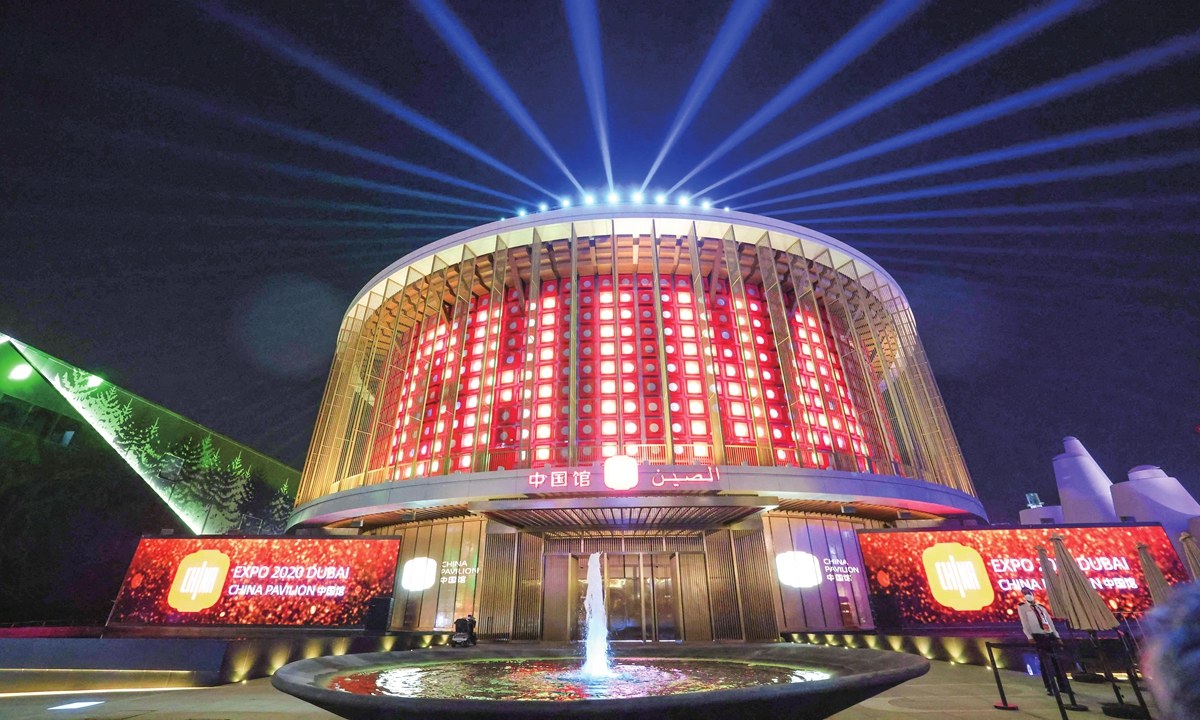
GT: China and the UAE have been cooperating on the development of COVID-19 vaccines since the early stage of the pandemic. What is the progress of the cooperation in vaccines? What role does the UAE play in developing and producing vaccines in the Middle East? How has China contributed to this?
Ni: Last year when the COVID-19 pandemic was at its worst, China and the UAE launched the world's first international phase III clinical trial of the COVID-19 inactivated vaccine. This trial led the world and provided a powerful weapon for human beings to confront the pandemic.
Afterward, China and the UAE together built up the factory that is able to produce 200 million doses of COVID-19 vaccines, allowing the UAE to become the distribution and transportation center of vaccines in the Middle East, benefiting many developing countries.
China has also made great efforts to support the UAE's national vaccination program. Currently, the UAE is one of the most vaccinated countries in the world.
Meanwhile, the UAE has also actively cooperated with China in applying the "Spring Sprout" program by setting up the vaccination point in Dubai, which allowed Chinese citizens in the UAE and nearby countries come to get vaccinated, making a great contribution to maintaining the health of Chinese citizens overseas.
GT: The UAE was one of the first countries to join the BRI and has always been a firm supporter and active participator of it. A series of cooperation around the BRI have served as a highlight of China-UAE relations. Please tell us more about the significant developments so far.
Ni: In the Middle East, the UAE has become the country with the widest and deepest cooperation with China under the BRI. China and the UAE have many major joint projects such as the Khalifa Port project, the second phase of the UAE Railway project, the seawater desalination project in Taweelah, and the Noor Energy project in Dubai.
China and the UAE also have an all-round cooperation in agriculture, clean energy, financial services, e-commerce and trade. There are thousands of Chinese-funded enterprises in the UAE.
At the same time, the two countries have a wide range of cooperation in culture, education, technology, traditional Chinese medicine, and other fields, which are important initiatives and highlights under the BRI.
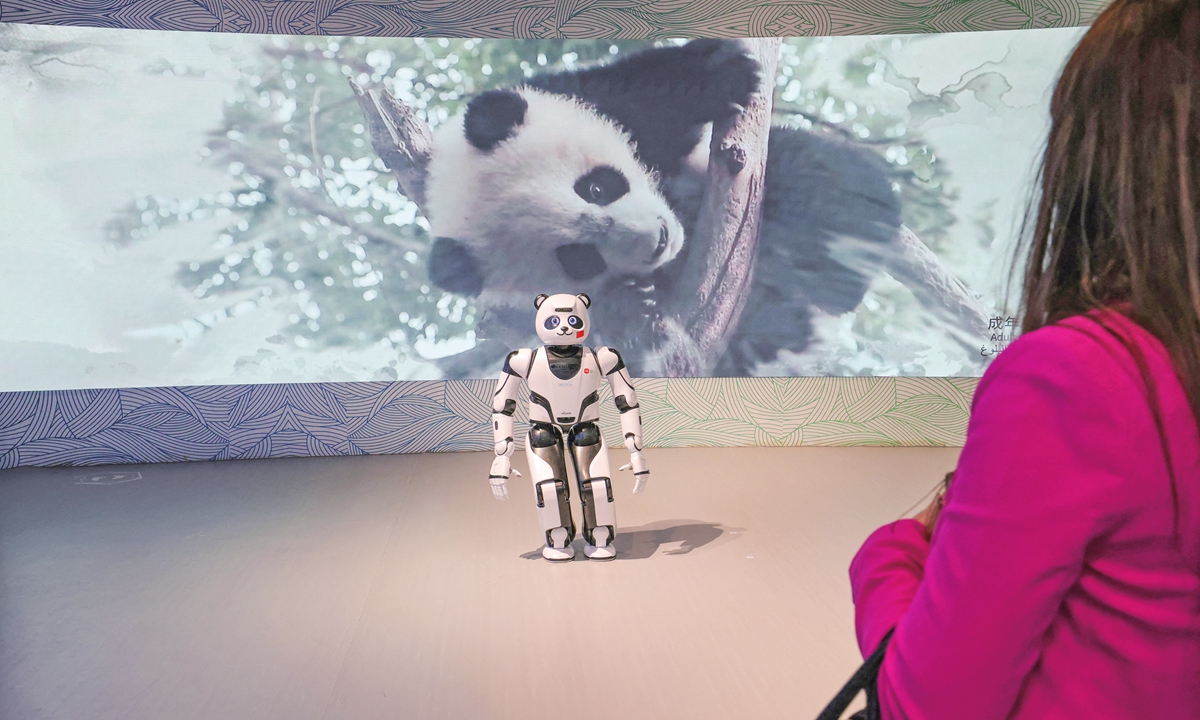
Ni: The UAE has long been supportive of China on the Xinjiang-related issues. Some senior UAE officials, including its ambassador to China, have visited Xinjiang. They have truly learned about Xinjiang's economic prosperity, social stability, unity, and the region's people living and working in peace and contentment. They also have unforgettable and beautiful memories from visiting the region.
In various ways, we hope our UAE friends are able to truly understand Xinjiang and have chances to visit Xinjiang in person, so that they can present the real Xinjiang to the world. Hopefully there will be more Xinjiang-based companies to invest in the UAE and make contributions to the mutual cooperation between China and the UAE.
GT: Since ancient times, the Middle East has been a bridge between the Western and Eastern worlds. Today, it has an important strategic position in the international community. While working in the UAE, did you experience geopolitical collisions?
Ni: The Middle East is indeed a region with a long history and rich culture. However, in recent history it has suffered from conflicts. In this region, the UAE is a safe oasis. It has created a miracle of development in the 50 years since its founding. A lot of work has been done in the fields of counter-terrorism and anti-centralization, and it has become one of the few countries in the Middle East to be insulated from terrorist attacks and violence. It also reflects the UAE's commitment to peace and a focus on development, and a spirit of innovation, tolerance, and diversity. Through exploration, the UAE has found a path suitable for its development. At the same time, it has also set up a model and provided its valuable experience in development to other Middle Eastern countries. At present, seeking stability and promoting development is the broad consensus of the international community, including Middle Eastern countries. China holds the spirit of equality and friendliness, and respects the independent choices of regional countries. We are willing to cooperate sincerely and make contributions toward the peaceful development of the Middle East.
China-UAE ties have been a model in the Middle East, as the two countries have achieved profound communication and cooperation in areas including economy, science and technology, and education. In the past years, the Belt and Road Initiative (BRI) has further deepened the bond between the two countries. What is the key to the success of the relationship between China and the UAE? What are the future plans to broaden cooperation? How can the people of the UAE better understand China? Recently, Global Times reporters Shan Jie and Lou Kang (GT) spoke with Ni Jian (Ni), Chinese ambassador to the UAE, who shared his experience in further promoting mutual communication.

Ni Jian, Chinese ambassador to the UAE
Ni: In 2018, Chinese President Xi Jinping paid a state visit to the UAE. During his visit, he brought forward "four hopes" on the development of China-UAE relations - the two countries will work hand in hand as "strategic partners who truly trust each other, collaborative partners who pursue win-win outcomes and mutual benefits, interactive partners who learn from each other, and innovative partners who champion result-oriented actions."
In the past few years, China-UAE relations have maintained a comprehensive, rapid, and in-depth development thanks to the practice of the "four hopes," the building of great trust and the new model of mutual ties that allow the two countries to help and understand each other.
The core and key here is that the two countries treat each other as equals. China believes that all countries, big or small, should be equal. We should respect each other's sovereignty, not seek spheres of influence, and initiate communication on divergent issues.
China's policy has won the understanding and respect of many countries in the Middle East and has also provided a solid foundation for the development of pragmatic cooperation based on mutual trust with win-win results for both China and Middle Eastern countries.
GT: At the China Pavilion at Expo 2020 Dubai, high-tech elements such as Yuan Longping's hybrid rice, bullet train models, and artificial intelligence robots are exhibited. How does cooperation in scientific and technological areas contribute to the steady progress of China-UAE relations?
Ni: Scientific and technological cooperation is one of the important contents of the comprehensive strategic partnership between China and the UAE. The UAE also attaches great importance to the research and development of science and technology, as well as the cooperation with China in this area, including joint work on sea rice, COVID-19 vaccines, and Huawei 5G technology.
China is willing to achieve a more open, inclusive, and mutually beneficial strategy on technological cooperation and is willing to deepen its practical cooperation with the UAE in fields such as AI, 5G technology, internet, life science, and aerospace, in order to further promote the mutual ties to develop in the fast track.

China Pavilion at the Dubai 2020 Expo Photos: VCG
GT: China and the UAE have been cooperating on the development of COVID-19 vaccines since the early stage of the pandemic. What is the progress of the cooperation in vaccines? What role does the UAE play in developing and producing vaccines in the Middle East? How has China contributed to this?
Ni: Last year when the COVID-19 pandemic was at its worst, China and the UAE launched the world's first international phase III clinical trial of the COVID-19 inactivated vaccine. This trial led the world and provided a powerful weapon for human beings to confront the pandemic.
Afterward, China and the UAE together built up the factory that is able to produce 200 million doses of COVID-19 vaccines, allowing the UAE to become the distribution and transportation center of vaccines in the Middle East, benefiting many developing countries.
China has also made great efforts to support the UAE's national vaccination program. Currently, the UAE is one of the most vaccinated countries in the world.
Meanwhile, the UAE has also actively cooperated with China in applying the "Spring Sprout" program by setting up the vaccination point in Dubai, which allowed Chinese citizens in the UAE and nearby countries come to get vaccinated, making a great contribution to maintaining the health of Chinese citizens overseas.
GT: The UAE was one of the first countries to join the BRI and has always been a firm supporter and active participator of it. A series of cooperation around the BRI have served as a highlight of China-UAE relations. Please tell us more about the significant developments so far.
Ni: In the Middle East, the UAE has become the country with the widest and deepest cooperation with China under the BRI. China and the UAE have many major joint projects such as the Khalifa Port project, the second phase of the UAE Railway project, the seawater desalination project in Taweelah, and the Noor Energy project in Dubai.
China and the UAE also have an all-round cooperation in agriculture, clean energy, financial services, e-commerce and trade. There are thousands of Chinese-funded enterprises in the UAE.
At the same time, the two countries have a wide range of cooperation in culture, education, technology, traditional Chinese medicine, and other fields, which are important initiatives and highlights under the BRI.

China Pavilion at the Dubai 2020 Expo Photos: VCG
GT: The UAE has always supported China on the issues related to the Xinjiang Uygur Autonomous Region. Not long ago, a "Xinjiang Day" event was held at the China Pavilion at the Dubai 2020 Expo. As Chinese ambassador to the UAE, how did you introduce China's Xinjiang-related policies to the people in the UAE? How to deal with the misunderstandings?Ni: The UAE has long been supportive of China on the Xinjiang-related issues. Some senior UAE officials, including its ambassador to China, have visited Xinjiang. They have truly learned about Xinjiang's economic prosperity, social stability, unity, and the region's people living and working in peace and contentment. They also have unforgettable and beautiful memories from visiting the region.
In various ways, we hope our UAE friends are able to truly understand Xinjiang and have chances to visit Xinjiang in person, so that they can present the real Xinjiang to the world. Hopefully there will be more Xinjiang-based companies to invest in the UAE and make contributions to the mutual cooperation between China and the UAE.
GT: Since ancient times, the Middle East has been a bridge between the Western and Eastern worlds. Today, it has an important strategic position in the international community. While working in the UAE, did you experience geopolitical collisions?
Ni: The Middle East is indeed a region with a long history and rich culture. However, in recent history it has suffered from conflicts. In this region, the UAE is a safe oasis. It has created a miracle of development in the 50 years since its founding. A lot of work has been done in the fields of counter-terrorism and anti-centralization, and it has become one of the few countries in the Middle East to be insulated from terrorist attacks and violence. It also reflects the UAE's commitment to peace and a focus on development, and a spirit of innovation, tolerance, and diversity. Through exploration, the UAE has found a path suitable for its development. At the same time, it has also set up a model and provided its valuable experience in development to other Middle Eastern countries. At present, seeking stability and promoting development is the broad consensus of the international community, including Middle Eastern countries. China holds the spirit of equality and friendliness, and respects the independent choices of regional countries. We are willing to cooperate sincerely and make contributions toward the peaceful development of the Middle East.

